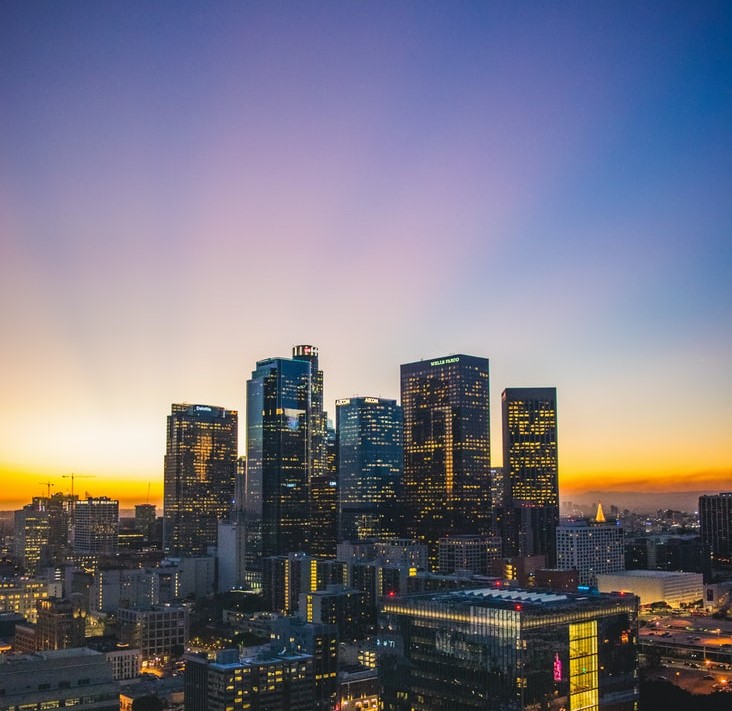
Corporations and Society: A boycott for Christmas?
Image: https://unsplash.com/@shrouda
By Lucy Evans
Society in Decline
Globalisation has led to the rapid, uncontrollable growth of corporations. Giving these corporate giants inevitably great political power, due to their economic influence; while creating detrimental social and environmental problems. With fast fashion companies such as ASOS and Topshop being responsible for 10% of annual global carbon emissions, at this pace, the fashion industry’s greenhouse gas emissions will surge by more than 50% by 2030. Meanwhile, Amazon, the world’s largest online retailer, through its use of globalisation, was responsible for around 51.17 million metric tons of carbon dioxide in 2019 – the equivalent of 13 coal burning power plants running for a year. Following a rise of reported 44.4 million metric tons in 2019.
The coronavirus pandemic has highlighted to us, that pulling the breaks on corporate activity can revive our environments. With factories and businesses closing their doors – ‘many cities are measuring the best air quality they’ve ever seen’. Not to mention shocker sightings of dolphins in Blackpool, making for a happy locked-down Lancashire. However, this isn’t quite the green future we envisaged. Since businesses began shutting their doors, more than 730,000 jobs have been lost. Universal credit claims have risen by an ‘unprecedented’ 117% since March While corporate giant leaders such as Jeff Bezos, has capitalised on the lockdown boredom of the public. Profiting from Amazons essential and medical deliveries, he pocketed £10 billion in just one day. Bringing his personal wealth to $189 billion.
Meanwhile, there are 795 million undernourished people in the world today. That means one in nine people do not get enough food to lead a healthy life. Thomas Peham explains that, according to UN officials, ‘$30 billion per year is needed to end world hunger.’ Meaning Bezos, if he chose to ratify these stark inequalities, could do so for six years; arguably enough time to fund and facilitate long-term solutions to world poverty and hunger. This forces us to question our consumerism: Why do we continue to feed and distribute our wealth, to the top 1%, while they hold 50% of the world’s total wealth? Are we to blame for these inequalities? Is it time we take control of the breaks?
Boycotting
By boycotting particular companies, meaning withdrawal from commercial or social relations as a punishment or protest, this intends to lead to greater social responsibility of corporations, or the complete dismissal of unethical companies. In respect to amazon’s surge and controversies, during the pandemic and its widening of wealth inequalities, is it time you joined the Christmas boycott?
Amazon is entangled by tax evasion scrutiny, branded ‘the worst out of big six US tax companies for “aggressive tax avoidance” by Fair Tax Marks UK report. BBC news states ‘the firm, which employs 33,000 people in the UK…paid £293 million in tax in the UK last year, while its sales surged 26% to £13.73 billion.’ It may be legal, but tax avoidance has infuriated the public. Demonstrating the elitist, wealth inequalities in the UK that must be challenged, and its potential for boycott. A 2017 survey claimed that 60% of people would boycott a company if they avoided taxes, suggesting that a boycott against amazon could be effective. Boycotting against tax avoidance proved successful in 2014, against Starbucks. Similar scrutiny led to an extra £20 million payment to the UK government to ‘put the scandal behind.’ This has built great momentum to boycott amazon and encouraged greater social evaluation of other companies, spreading a trend of support for socially responsible companies, while validating ethical corporations.
But are boycotts always successful? Amazon has long been scrutinized for its poor worker welfare. ‘It is in the top of 20 employers whose workers rely on food stamps…amazon employees have peed in old water bottles because they can’t take toilet breaks.’ Yet, Covid-19 has sparked a surge in amazon shares, making Jeff Bezos the richest man; suggesting that efforts to Boycott are not successful. However, I credit this to the consumerist nature to lockdown boredom. Which, in the end, will be at our own expense as these stark inequalities imbed themselves. In these times of economic uncertainty, it’s our responsibility to support of local businesses, redistribute wealth and support those crumbling under the unforgiving wave of covid-19. So, boycott for Christmas, to cancel the immoral behaviours of corporations.

0 Comments